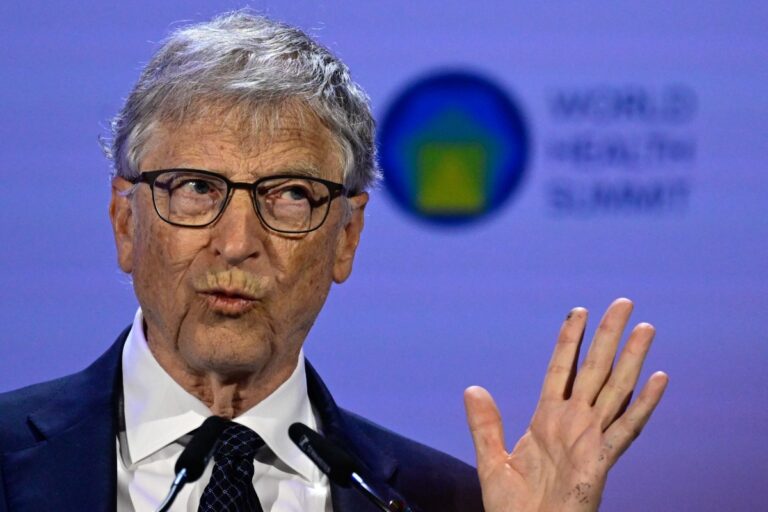
What do the most successful people in the world have in common?
Money is probably the first thing that comes to mind, but success is how you define it — and it goes beyond how rich you are.
For some, success means finding something you’re deeply passionate about and pursuing it.
For others, success is finding the love of your life and starting a family together.
Who you are often determines what you deem successful, and your personality type makes a difference.
However, when we look at successful role models, we often consider their net worth, passion, happiness and what they do in their free time.
No matter how you define success, having a role model can be important in your own journey.
They are vital as they give you something to aspire towards. The most successful people in the world can inspire you, provide you with insight, and motivate you to do better.
But there’s a dark side to copying your heroes blindly.
The truth behind the most successful people in the world
There are a couple of downsides to having a famous role model.
We tend to glamourise their existence, which can turn into a parasocial or one-sided relationship (often developed with celebrities or fictional characters).
Forbes reports that this can hinder “our ability to develop and maintain fulfilling real-life romantic relationships.”
Idolising celebrities can also harm your sense of self and lead to never thinking you are good enough.
For many, imposter syndrome — the internal psychological experience of feeling like a fraud in some area of your life despite any success you have achieved — can creep in.

Even US supermodel Bella Hadid has experienced imposter syndrome. Source: AFP
How to overcome imposter syndrome like the most successful people in the world
While imposter syndrome is not a diagnosable mental health issue, it can happen if you are experiencing a lot of self-doubt or negative self-talk.
Imposter syndrome at university and work can look like this:
- You feel like you “got lucky” when you actually prepared well and worked hard.
- You find it hard to accept praise.
- You apologise for yourself when you didn’t actually do something wrong.
- You hold yourself to incredibly —sometimes impossibly — high standards.
- You find the fear of failure paralysing.
- You avoid expressing confidence because you think people will see it as overcompensating or obnoxious.
- You’re convinced you’re not enough.
- People close to you say you’re not as confident as you used to be.
- You turn down opportunities for growth or visibility at work.
Imposter syndrome is an equal-opportunity intruder and can affect anyone. If you ever feel this way, remember you are not alone.
Harvard Business Review reports that around one-third of young people suffer from it, and 70% of everyone else is likely to experience it at some point in their lives.
From Lady Gaga and Emma Watson to Sanya Malhotra and Neelam Gill, many high achievers have openly admitted to grappling with imposter syndrome.
Even some of the most successful people in the world have felt the crippling sense of doubt that this comes with.
This includes supermodel Bella Hadid, actress Lupita Nyong’o, celebrity chef Wolfgang Puck, and actor Tom Hanks.
Their admission of feeling this way sends a powerful message: it’s okay to admit uncertainty. Such transparency can inspire personal growth and encourage others to do the same.
So how do you overcome imposter syndrome? Do what the most successful people in the world do.
Recognise your accomplishments and celebrate even the smallest stuff. You got them by working hard and doing your best. Celebrating can help boost your self-esteem.
Successful people view challenges and mistakes not as threats but as learning opportunities. Use your self-doubt as a chance to grow and learn more.
Turn to friends, family, mentors and peers to reassure you. Ask for their help and guidance. They see a clearer picture of who you are and what you have accomplished so that they can reaffirm your successes.
Overcoming imposter syndrome is a journey towards self-acceptance. Successful individuals embrace their unique qualities and recognise that their differences make them extraordinary.
You must also remember that it is about the journey, not the destination. This feeling can go and come back, which does not mean that you have failed but rather that you need to work on it at your own pace.
Many accomplished individuals stress the significance of self-reflection and personal development in their fight against imposter syndrome.
They acknowledge that it’s an ongoing battle, but introspection, personal growth, and a commitment to self-improvement can help win the war.
9 most successful people in the world in 2024
We have referred to Forbes’ source for the most successful people in the world. Some of their net worths are calculated as of November 11, 2024.
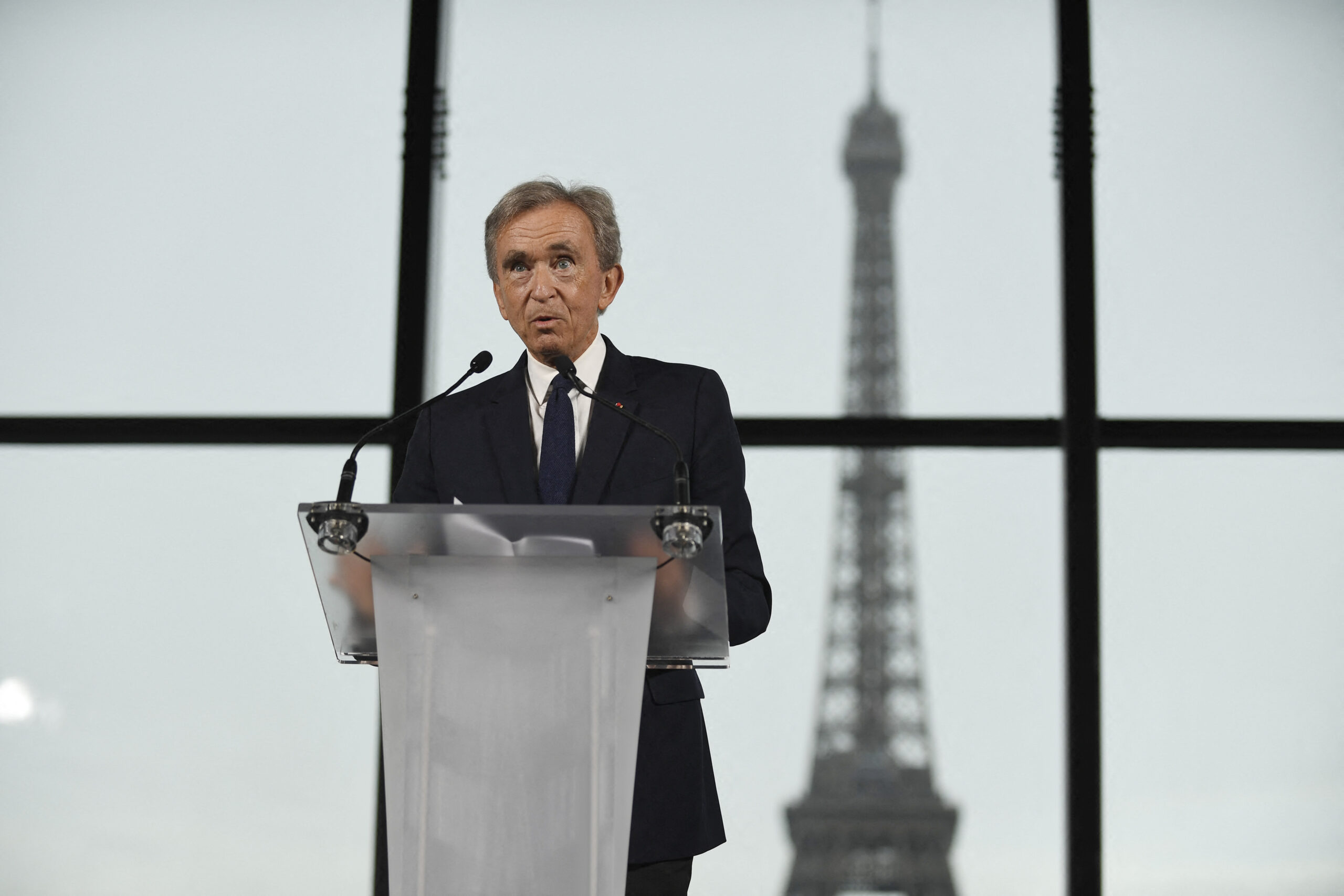
Bernard Arnault is one of the richest people in the world. Source: AFP
1. Bernard Arnault
- Net worth: US$233 billion
- Education: Bachelor’s degree in engineering degree from École Polytechnique
At the top of the World’s Billionaires list is none other than the French luxury goods tycoon Bernard Arnault of LVMH Moët Hennessy Louis Vuitton (LVMH), which owns Louis Vuitton, Christian Dior and Tiffany & Co., among others.
The group announced a revenue of 41.7 billion euros in the first half of 2024, and while news outlets reported that “LVMH is in trouble” due to their third-quarter revenue falling by 3% — a number below what analysts forecasted — Arnault is still sitting well on top of the list of billionaires, ahead from the runner up.
And while the French luxury goods tycoon didn’t have the talent to make it as a concert pianist, he did get into École Polytechnique‘s historic and highly selective engineering programme.
Perhaps it’s the combination of strict military training and an engineering degree that played a crucial role in shaping Arnault.
“My studies at École Polytechnique have given me an analytical and synthesis capacity that is inherent in the educational method of I’X and École Polytechnique’s training, which allows both to analyse the challenges you may meet in a factual and detailed way,” shares the CEO in a talk at the school.

As with most successful people in the world, Elon Musk is no stranger to tabloid news. Source: AFP
2. Elon Musk
- Net worth: US$195 billion
- Education: Bachelor’s degrees in physics and economics, University of Pennsylvania
You may know him as the co-founder of PayPal, founder of SpaceX, a significant investor in Tesla, or the guy who acquired Twitter (now X) in 2022.
But did you know Musk still loves the simple routines in his life?
When he is not working, he loves to relax with some whiskey or wine, reads anime, and tweets.
He’s also a firm believer in being efficient. This billionaire actively discourages unnecessary meetings and is all for an optimal workflow.
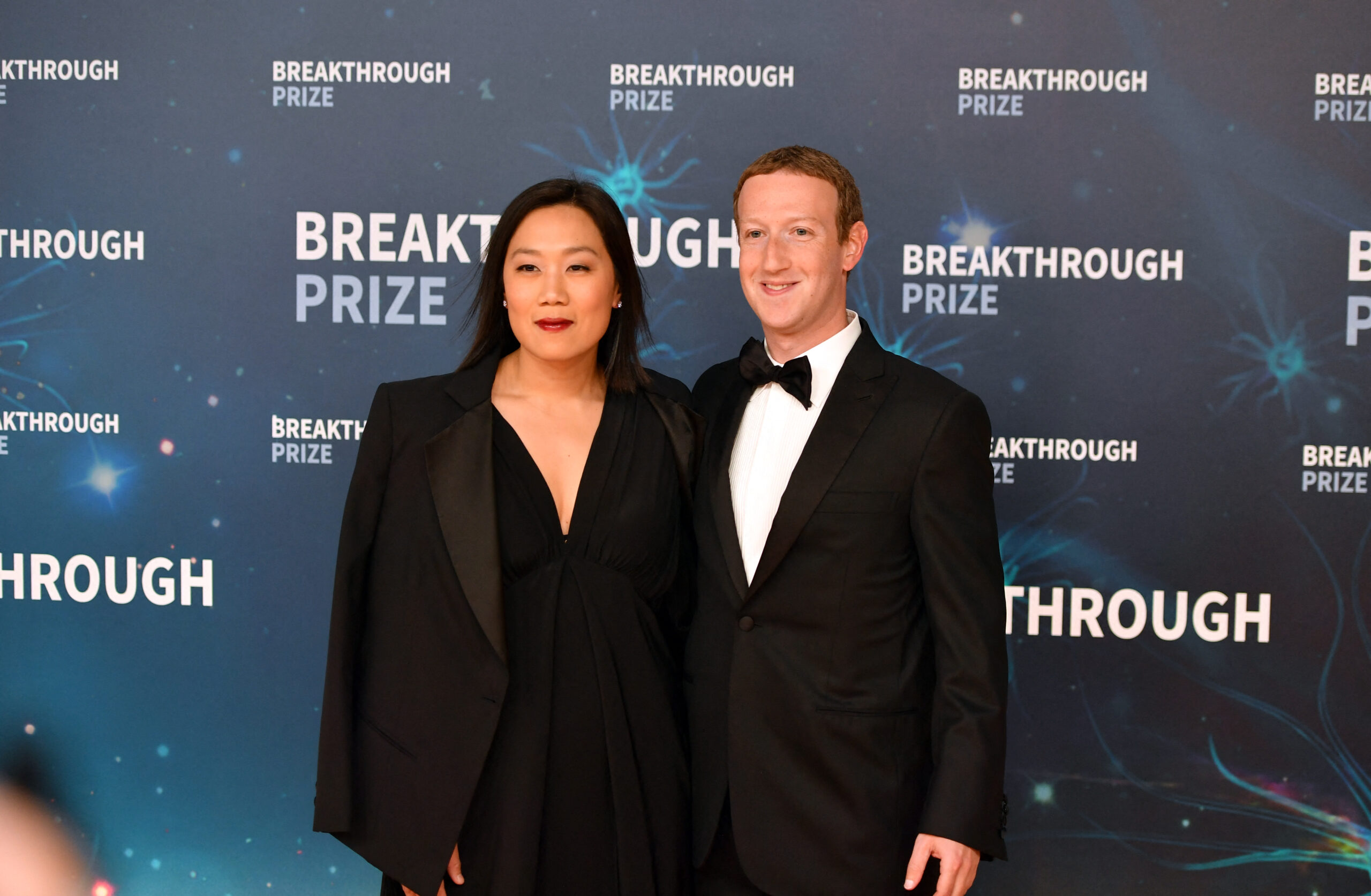
Priscilla Chan and Mark Zuckerberg, often thought to be some of the most successful people in the world, have philanthropic causes close to their hearts. Source: AFP
3 & 4. Mark Zuckerberg and Priscilla Chan
- Net worth: US$177 billion (Mark Zuckerberg)
- Education: Harvard University dropout (Mark Zuckerberg); Harvard University graduate and medical degree recipient from the University of California (Priscilla Chan)
The Meta Platforms (formerly Facebook) CEO and his wife, Priscilla Chan, a doctor, have multiple ambitious goals, which include curing, preventing, or managing all diseases.
The Chan Zuckerberg Initiative (CZI), their philanthropic and advocacy organisation, says it has given out US$6.98 billion in grants since it was founded in 2015, backing scientific and medical research, as well as education and criminal justice reform.
In October 2024, CZI announced three grants supporting artificial intelligence (AI) education initiatives to empower educators as co-creators of future technologies.

Larry Ellison attended the Rebels With A Cause Gala 2019 at the Lawrence J Ellison Institute for Transformative Medicine of USC, where he was the guest of honour. Source: AFP
5. Larry Ellison
- Net worth: US$141 billion
- Education: Dropout, University of Chicago; Dropout, University of Illinois, Urbana-Champaign
Larry Ellison certainly isn’t the only billionaire college dropout to find success in Silicon Valley, but he was one of the first — before Bill Gates, before his best friend Steve Jobs, and before Michael Dell.
He stayed in school long enough to learn about computer design.
A few years later, he invented a database by reading a paper written by an IBM scientist.
Today, some of the world’s largest companies operate on this database. Whether you’re using a credit, booking an airline ticket, or buying a prescription drug, Oracle helps you do it.
Throughout his tenure, Ellison drove Oracle to be the world’s biggest provider of database software before moving on to dominate the business software industry.
His takeover of PeopleSoft for US$10.3 billion was considered one of the nastiest hostile takeovers in tech history.
Still, Larry Ellison has been called a closet philanthropist.
Unlike other billionaires such as Gates, he doesn’t talk much about his philanthropic efforts, though he’s focused on medical research and green energy.
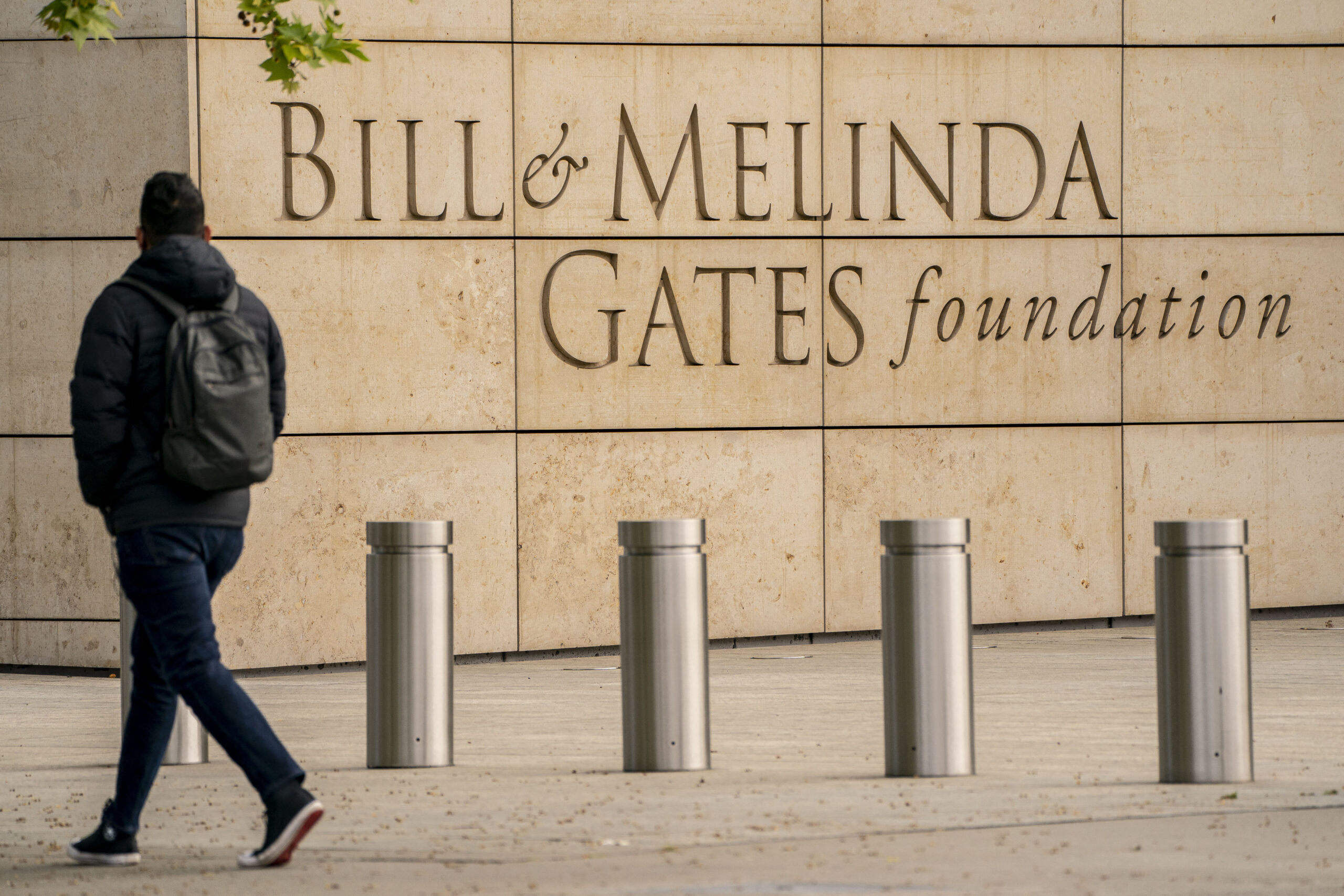
The Bill & Melinda Gates Foundation made US$5.8 billion in grants in 2020, including spending on research and vaccines for Covid-19. Source: AFP
6 & 7. Bill Gates and Melinda French Gates
- Net worth: US$128 billion (Bill Gates); $11.1 billion (Melinda French Gates)
- Education: Harvard University dropout (Bill Gates); Bachelor’s degree in computer science and economics from Duke University, MBA from Duke’s Fuqua School of Business (Melinda French Gates)
Though this power couple ended their 27-year marriage, they continue co-chairing the Bill & Melinda Gates Foundation, the vehicle for nearly all their philanthropic giving.
As of the last quarter of 2023, the Foundation has given out US$77.6 billion in grants.
Forbes divided the grantmaking by the foundation since 2007 between the Gateses and major donor Warren Buffett.
On top of this, Melinda has given some money via her investment and incubation company, Pivotal Ventures.
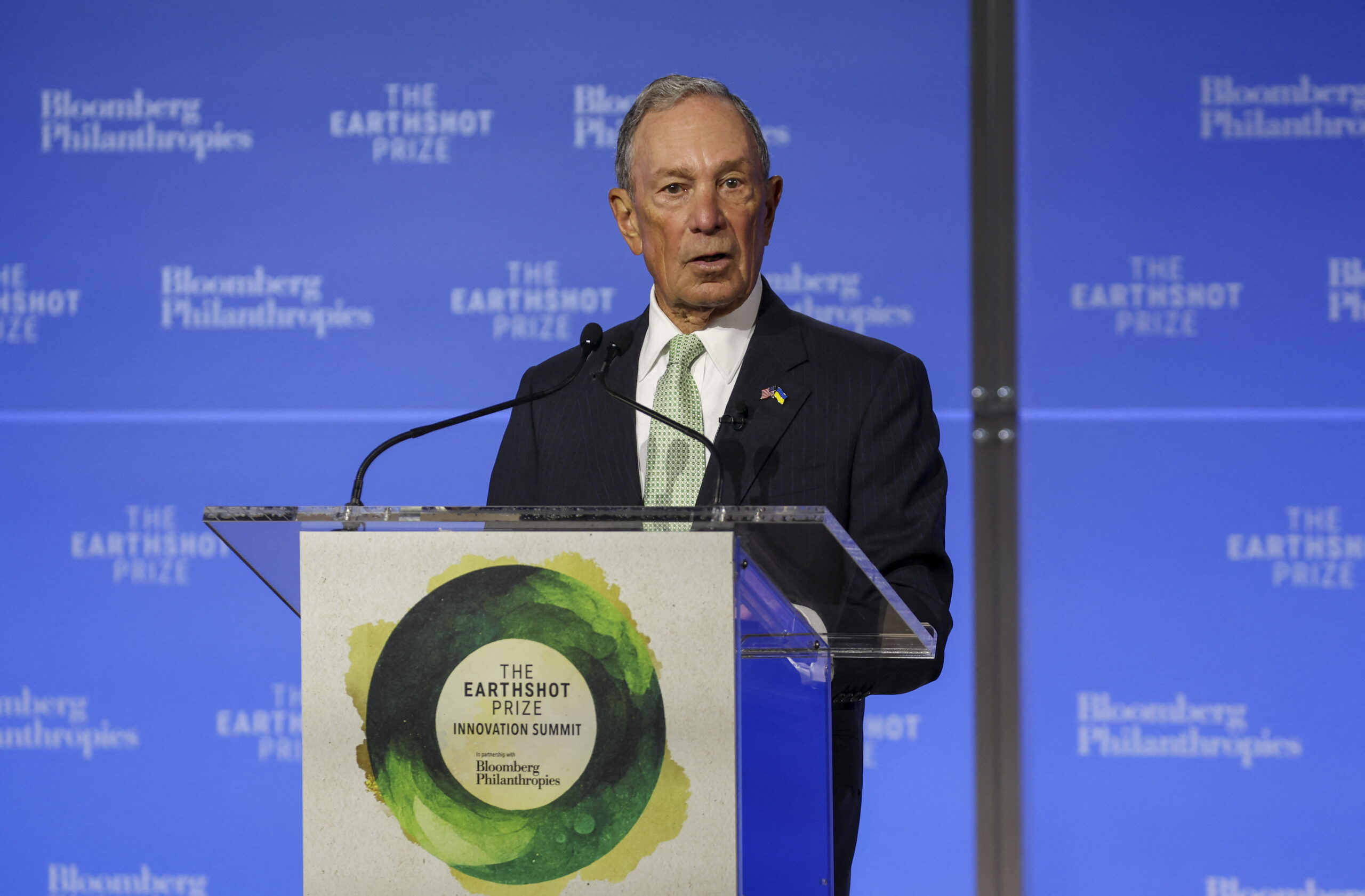
As one of the most successful people in the world, Michael Bloomberg has poured more than $12 billion into charitable causes. Source: AFP
8. Michael Bloomberg
- Net worth: US$106 billion
- Education: Bachelor of Science, Electrical Engineering at The Johns Hopkins University, MBA from Harvard Business School
The former New York City mayor and Bloomberg LP co-founder has poured more than US$17 billion into charitable causes, including US$4 spent around the world in 2023, according to his Bloomberg Philanthropies.
- In 2018, he announced a US$1.8 billion pledge to Johns Hopkins University, his alma mater.
- Following the 2020 George Floyd protests, Bloomberg Philanthropies announced a US$100 million gift to support four historically Black medical schools.
- In 2024, the philanthropy launched a major initiative to create 10 US high schools focused on preparing students for high-demand, well-paying jobs in the healthcare industry.
Disclaimer: This article was last updated on November 14, 2024.










